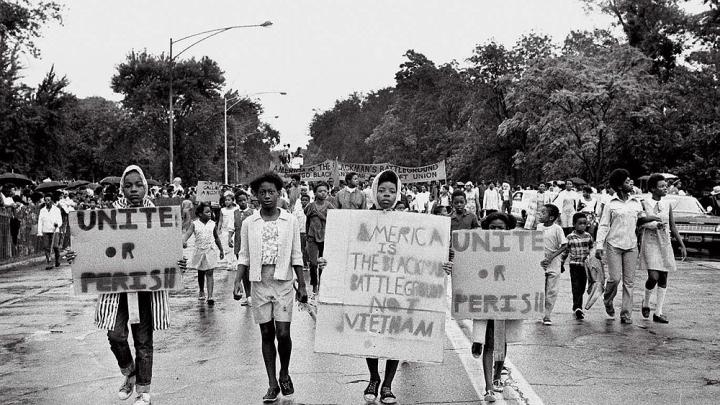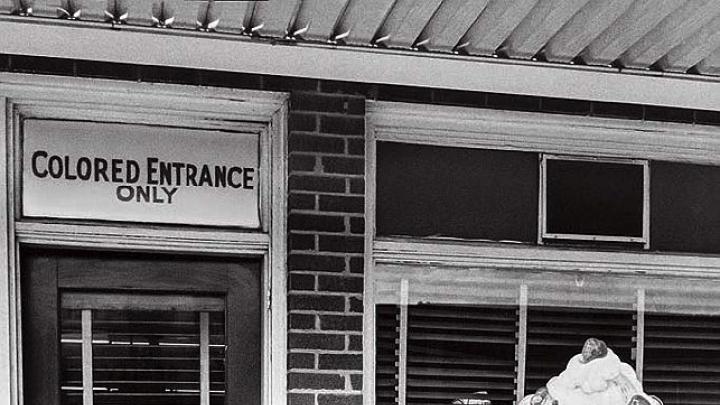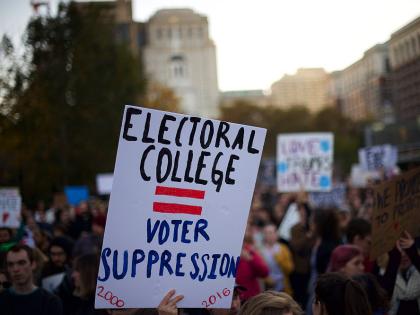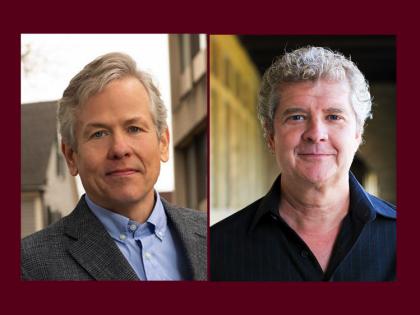“Time is Now: Photography and Social Change in James Baldwin’s America,” on display through December 30 at the Sert Gallery, features images taken from the early 1930s through the late 1980s by more than a dozen photographers. A joint effort by the Carpenter Center for the Visual Arts and Harvard Art Museums, the exhibition evokes places, as well as personal and historic events, that influenced Baldwin and his work. “The exhibit looks at the way that photography can be transformative, and really calls witness to what was happening in the world” during Baldwin’s lifetime, says Daisy Nam, assistant director of the Carpenter Center.
Its themes include religion, music, the role of race in America, sexuality, and family life, and highlight facets of the seismic cultural transformations often chronicled or critiqued by the writer. Marion Palfi’s 1949 untitled photograph of the wife of a lynching victim, from her series “There Is No More Time,” shares space with Diane Arbus’s 1965 image A Young Negro Boy, Washington Square Park, N.Y.C. Also featured are the pioneering fine-art photographer Roy DeCarava, who captured African-American life and jazz musicians in Harlem; Marion Post Wolcott, documenter of American rural life and poverty during the Great Depression; and Robert Frank, who collaborated with Beat Generation novelist Jack Kerouac on the influential 1958 book The Americans, which challenged romantic conceptions of the American Dream.










